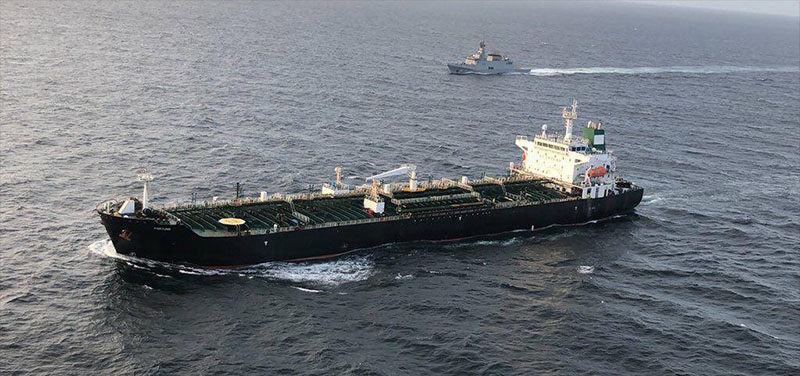Alwaght- As Iranian oil tankers approach Lebanon coasts, the Lebanese people are upbeat about end of the fuel shortage that has been affecting the gas stations, power plants, hospitals and many other facilities over the past weeks.
However, while many are happy to see fuel coming to the country to address the needs with arrangements of Hezbollah movement, some are extremely furious to see the movement's success in finding ways to solve the people's problems, and give publicity to their fury in a variety of ways using their media. In recent days, the opponents of the move argued that Hezbollah fuel purchase from Iran was off the government circle and thus risked forming a parallel government and undermining national independence, a reasoning that apparently is aimed at provoking public sentiments against Hezbollah Secretary-General Sayyed Hassan Nasrallah.
The Lebanese look forward to see fuel arriving, amid critics' passivity
An important reality about Iran sending oil shipments to Lebanon is warm welcome of the move by the public that comes thanks to the timely arrangement of Hezbollah and finding a way to end the fuel crisis. Regardless of the political and media propaganda and opposition groups, and in the midst of the inefficiency of the government and politicians, the Lebanese are happy to buy gasoline and end long lines at gas stations and support Hezbollah moves to address their problems.
Tired of the incompetence of the politicians and tough economic conditions, the people in Lebanon do not buy the political excuses and bias of anti-Hezbollah forces. They ask the opponents about what they have done to alleviate the fuel shortage effects. Saudi Arabia and the US which are the world's largest oil producers and backers of Saad Hariri, who is the main face of anti-Hezbollah forces, have so far declined to supply Lebanon with fuel, despite their interference in smallest aspects of the Lebanese politics. The US has only made things worse for Lebanon with its economic sanctions against the country's banking sector under the excuse of countering Hezbollah.
Hezbollah savior of independence, security, and democracy in Lebanon
The plotting against the power of the Hezbollah is not new and has existed over the past two decades, especially with regard to the weapons of the movement that played as guarantors of the Lebanese sovereignty. While for the past two decades Hezbollah has been at the forefront of countering Israeli aggression and foreign political interference in Lebanese affairs and acted as the defender of Lebanon's territorial integrity and political independence, its foes have pushed to disarm the movement and integrate it in the national army in a bid to undermine Lebanon militarily and pave the way for broader meddling to tip the scales of power in favor of the Israeli regime.
Negative and intimidating propaganda in Lebanese society about the growing power of the Hezbollah in dealing with foreign and domestic crises comes while the public are well aware of the way Hezbollah acted in the politics over the past decades. People, actually, know that the movement is committed to democracy, circulation of power, and public participation in the election seen in the constitution and will never use its military force to seize power or impair the governance and political order.
Hezbollah stepped in search of a solution to the fuel crisis as the rival camp is hampering formation of a new cabinet and thus does not allow a solution to the political crisis and a stable government that can go to negotiation with foreign sides to attract their aids and make reforms to treat the present hypercrsis. In the middle of this troublesome political vacuum, Hezbollah used its warm relations with its staunch regional ally Iran to help ease the fuel crisis. This means that claims of circumvention of the government is untrue.
Iran prescription to ease Lebanon crisis
The argument pushed forward by Hezbollah opponents that the oil imports from Iran damage the Lebanese foreign policy independence is also invalid and mainly highlighted by foreign anti-Hezbollah forces. Firstly and undoubtedly, economic crisis creates the ground for foreign meddling and essentially the current crisis is an outcome of mismanagement of the previous governments mainly held by those now blaming the present situation.
Secondly, Iran cherishes other countries' sovereignty and independence as a paramount principle in its regional and foreign policy. This Tehran approach has always drawn Iran opposition to foreign interference in the Lebanese home affairs and also its supports to Beirut in the face of constant Israeli threats. Now the Iranian oil shipments to Lebanon and the readiness to continue the supply are steps giving the Lebanese independence and sovereignty a leg up.



























